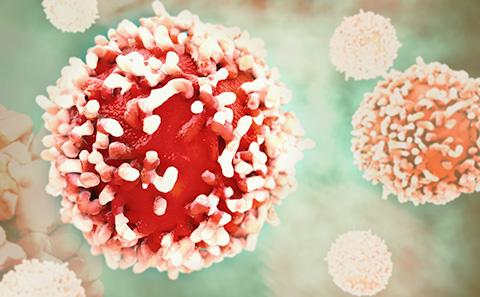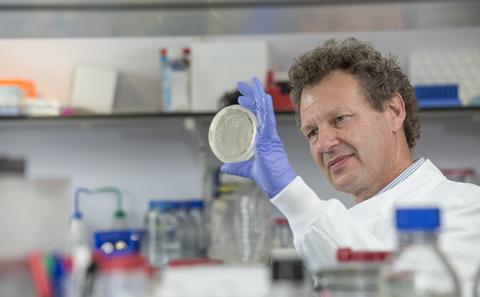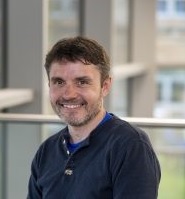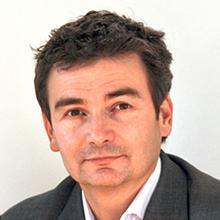Taking on hard-to-treat cancers
Understanding what makes a cancer resistant to therapy
Our research into cancer is saving lives. Scientists are making ground-breaking progress at Southampton in both the lab and the clinic, and thanks to our Centre for Cancer Immunology, this success is expected to continue.
In the UK, someone is diagnosed with cancer every two minutes, and some types remain harder to tackle than others. Meeting the challenge of understanding why some cancers are resistant to treatments is our team of world-leading academics and researchers.
Strengthening antibodies
Mark Cragg, Professor of Experimental Cancer Research at Southampton, works on immunotherapy, using the bodies’ immune system to fight cancer. Specifically, he has been exploring different ways of using antibodies – a key protein in the immune system which identifies harmful foreign objects such as bacteria and viruses – and vaccines to treat cancer patients. Alongside his colleagues in the Antibody and Vaccine group, and an extensive team of other scientists and clinicians in Southampton, he is passionate about translating their most important findings into the clinic.
“One of the things that we work on particularly is why some patients respond and why others don’t,” says Mark. “It’s always been of academic interest and becoming increasingly important as we start to treat more patients with different types of immunotherapy.
“When using antibodies to treat cancer – a proportion of people go towards long-term survival, whereas some just don’t respond or respond initially but then become resistant. Why? That is the big question. If we can understand that, we can design strategies to overcome it and improve patient responses.”
In their attempts to understand what is going on, scientists like Mark have discovered that, when tumours begin to grow, the cancer cells attract and change the behaviour of the normal cells that surround them, to form what is called the tumour microenvironment – which is where the problems begin.
One example of this can be seen in how the tumour cells interfere with macrophages – a type of white blood cell which digests unhealthy or harmful cells as part of the normal function of the immune system. Antibodies applied by researchers like Mark can bind to the tumour cell with one end and Fc receptors – specialised proteins on the surface of the macrophage – at the other end, which causes the macrophage to ‘eat’ the cancer cell.
However, the tumour cell is able to change the Fc receptors on the macrophage, which prevents them from being activated, and therefore renders the antibody ineffective. In this way, the tumour is protecting itself from the immune system. Importantly, the amount by which the tumour changes the macrophages varies in each person, helping to explain the different responses to treatment we see.
The Antibody and Vaccine group has been working to reverse this effect; by giving the macrophage something called a ‘STING agonist’, the macrophages are re-activated, enabling the macrophage to continue eating the tumour cells. Mark and his colleagues have been awarded a five-year Cancer Research UK programme to understand this and other mechanisms of resistance further.
Mark says: “For us, the next step is developing a deeper understanding of how cancer cells manipulate the immune system to avoid destruction and then designing ways of stopping them.”
For us, the next step is developing a deeper understanding of how cancer cells manipulate the immune system to avoid destruction and then designing ways of stopping them.
Figuring out Fibroblasts
Resistance to cancer treatment, including immunotherapy, can also be caused by a different type of cell. Gareth Thomas, who is Professor of Experimental Pathology and specialises in head and neck cancers, has been focusing on a group of cells called fibroblasts.
These cells provide the ‘scaffolding’ for normal tissues in the body, but can become ‘hijacked’ by cancer cells to become cancer-associated fibroblasts (CAF). In a recent paper published by Gareth and his team, they have uncovered that cancers which contain lots of CAF behave very aggressively, and that often the most hard-to-treat cancers contain high numbers of these cells.
It is Gareth’s goal to understand how these cells cause aggressive cancer behaviour, and what causes these ‘activated’ CAF to be present in the first place.
“The reasons why we think CAF cause tumours to behave aggressively is because these cells promote the spread of cancer around the body.” explains Gareth. “We also find that tumours which have lots of CAF are ‘immune cold’ and tend not to have very many ‘killer’ lymphocytes, so we think that CAF shield tumours from the patient’s immune system, which is a problem if you want to treat a patient with immunotherapy. Eliminating CAF from patients’ cancers may therefore improve treatment response.”
Gareth’s team have been trying to understand how CAF hide cancers from the immune system.
‘We find that in cancers with lots of CAF, lymphocytes tend to get stuck around the edge of the tumour, and don’t seem to be able to get at the tumour cells to kill them. We think that in part this may be due to the proteins (particularly collagens) that CAF produce, generating a dense ‘shield’ that lymphocytes find difficult to move through - we have been working with groups in engineering to look at this more closely; using imaging technology map collagen structure in patients’ cancers.
"We have also been looking at ways of targeting CAF in cancers, and have identified an enzyme called NOX4 which seems to be important in activating CAF in most cancer types. We find we can block this using a drug that has been developed to treat a condition called organ fibrosis. We think that using this drug in cancers that contain lots of CAF may improve response to immunotherapy, and our early experiments show that this is the case.”
Gareth explains: “It’s important to remember that cancers are made up of lots of cell types, not just cancer cells, and these other types of cells have a major effect on response to treatment and patient survival.
“As we understand more about tumour biology, the way we classify and treat cancers will change, and therapy will become much more personalised to the individual patient, rather than being based on cancer type.”
Our new Centre for Cancer Immunology will be the first centre in the UK to bring these specialists all together under one roof to focus uniquely on cancer immunology research. It is very exciting and will make a huge difference to our progress.
Cancer classification and collaboration
Researchers such as Mark and Gareth are working together with clinicians, scientists and surgeons at Southampton and further afield to solve these problems; a combination of expertise and wide-ranging knowledge ensures that teams can fight these cancers more effectively, and make these treatment-resistant cancers a thing of the past.
“We collaborate with lots of other people, and I think that’s the biggest thing that’s changed in recent years – on a national and international scale,” says Mark. “We’re working with other scientists who are experts in different areas and fantastic clinicians, together with people in pharmaceutical and biotechnology companies to develop reagents which will improve cancer treatments."
“Our new Centre for Cancer Immunology will be the first centre in the UK to bring these specialists all together under one roof to focus uniquely on cancer immunology research. It is very exciting and will make a huge difference to our progress.”
Related Staff Member
Related Staff Member
You may also be interested in:

Beating breast cancer
Examining inherited high-risk genes in order to tackle genetic breast cancer.

From bench to bedside - and beyond
Supporting patients at all stages – from harnessing the immune system to create new treatments, to helping people living with cancer to self-manage their condition

